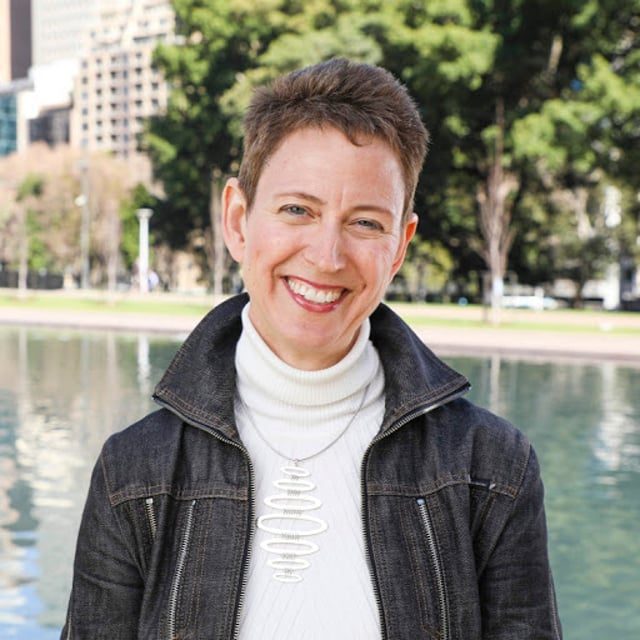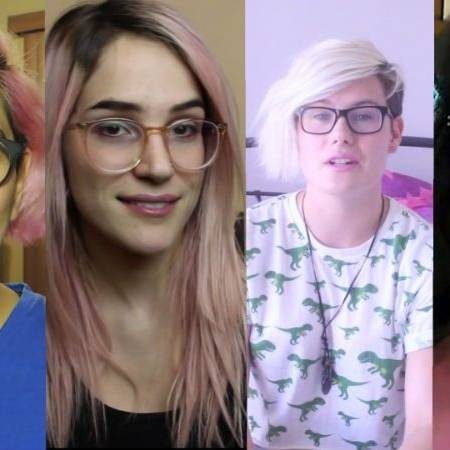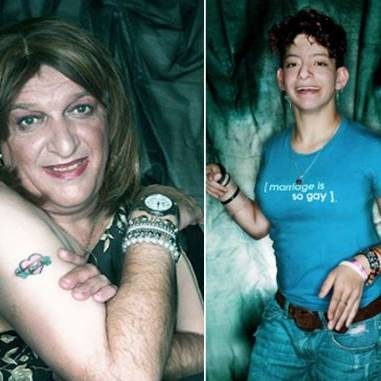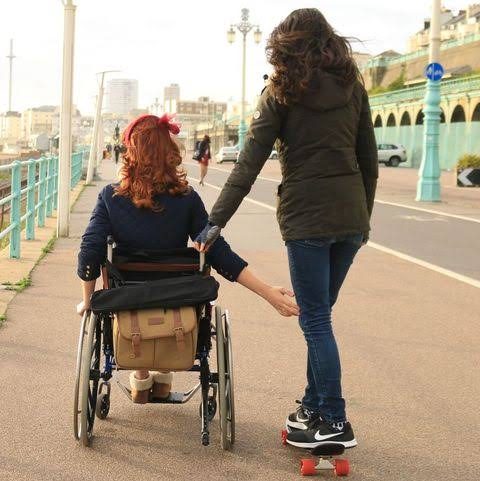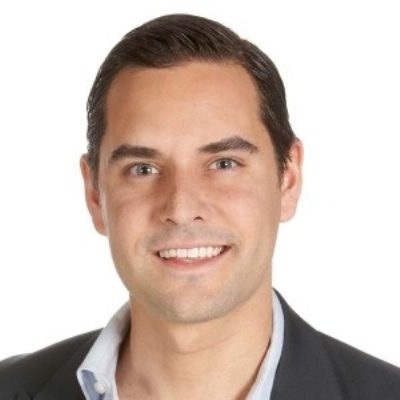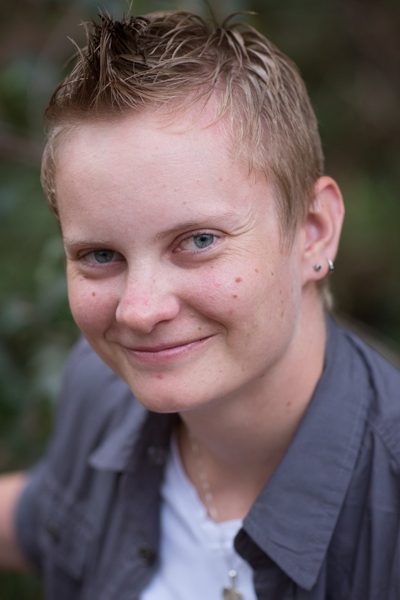
The Deaf Society of NSW encourages others to embrace their identities.
The Deaf Society of NSW works in partnership with the Deaf Community to enhance the quality of life of deaf people, strengthen the community, and advocate for changes that will ensure fundamental rights and freedoms.
Part of the Deaf Community is Gemma Galea, a young, dynamic leader who is all about embracing diversity and identity. Born profoundly deaf and genderqueer, Galea began rejecting all efforts to conform from an early age, from flushing her dresses down the toilet at age 3, to continue hiding her cochlear implant processor from her mother before abandoning it altogether at 21.
As seen through her roles as school captain in both primary and high school, she was born to lead. As a young leader and artist, she was selected to attend Deaf Way II in Washington DC at the age of 15, where a gathering of almost 10,000 Deaf people met to share arts, research and language. The following year, she represented NSW in tennis at the Australian Deaf Games in Sydney.
After re-establishing a very successful practice group for Australian Sign Language (Auslan) students and attaining her teaching qualifications as the only Deaf student in the class, Galea was awarded Youth of the Year by Deaf Australia NSW in 2009. LOTL spoke to Galea:
Who/what motivates and inspires you? What keeps you going through difficult times?
I was inspired several years ago to become a teacher when I took on a voluntary role to revive an old Auslan practice group for students who wanted to improve their language skills. I realised from facilitating this group that I had a natural instinct and skill for teaching and working with students, and so at the age of 23 I went and got my adult teaching qualifications, and went on to become an Auslan teacher at both Deaf Education Network and TAFE.
When the chips are down or I’m finding it difficult to motivate, I like to take time out and replenish. Gaming and reading The Phantom are some of my favourite pastimes! I also get a lot of pick-me-up from my friends and my wife, people who encourage me to continue going ahead even when it’s difficult.
Which experiences in your life were critical to shaping who you are and where you are today?
A turning point in my life came when my mum saw me struggling with my sexuality and took me to twenty10. I was 20 years old. On my first day there I met a girl who could sign, and very quickly she became my first girlfriend. My mother was wonderful and had long ago accepted that I would probably be gay. From this point on I began to develop my adult identity. Not long after this, another huge shift occurred – I decided to remove my cochlear implant. I’d spent all my life struggling with two identities – I was deaf, yet with a cochlear implant I was expected to be able to hear, and understand, and speak. This wasn’t me. It came to a head when I decided to choose the identity that gave me the most freedom, the most identity, the most pride and the most acceptance – and that was to be a fully Deaf queer person. I haven’t looked back since.
Can you elaborate on the topic of cochlear implants?
I could go on forever about cochlear implants but I’ll try and keep it brief. CIs are successful for some, but not all people. A CI has its limitations, and certainly, for myself, I did not feel it was successful. It saddens me to see deafness so medicalised, with no real value given to the culture and history and richness of the Deaf community and our language. These days almost all babies are implanted, and not given signing opportunities. They usually stumble into the signing deaf world later in life, and so many people I have met wish they had been given these opportunities for full access to language, much earlier in life. I am not against the cochlear implant, but I am against the idea that it transforms deaf people into hearing ones. It does not, nor should it. All deaf children should be given sign language instruction as a birthright. It is the only full access to the language they can ever get without difficulty, without struggle, without lipreading. I’d also like to see all doctors and medical staff giving a range of options to parents whose children are born deaf, not just talking about the cochlear implant as the only solution.
Do you have any advice for other LGBTIQ people?
Be yourself. Dare to be different. And step outside of your comfort zones and challenge yourself. Many Deaf LGBTIQ women complain that other women are too scared to approach them, or intimidated by the initial communication difficulty. However we are very good at getting by with gestures, facial expressions, and phone texting in a club to each other is quite handy! And you can learn the Auslan alphabet in less than 5 minutes. Don’t forget to maintain eye contact – for us Deafies our eyes are our ears, and we use them to read your lips as well as your body language and gestures. Don’t be shy. Come say hi!
What are you working on right now?
Currently, I have returned to studying an original passion of mine – 3D animation. I am studying in the city at the Academy of Interactive Entertainment, and they’ve been really helpful and accommodating with accepting an Auslan-using Deaf student. I excelled in digital media as a young adult, graduating with Distinctions, and I wanted a career in 3D animation. However, a negative and horribly awkward interview experience, where I felt my deafness rather than my capability was focussed upon, saw me lose my confidence in my ability to work in the field. Recently however my wife challenged me to take this up again and so I have returned to studying and now have a new goal, of working as a freelance 3D animator. I am also still teaching Auslan – contact the Deaf Society or your local TAFE if you’d like to learn some! It’s a lot of fun!

